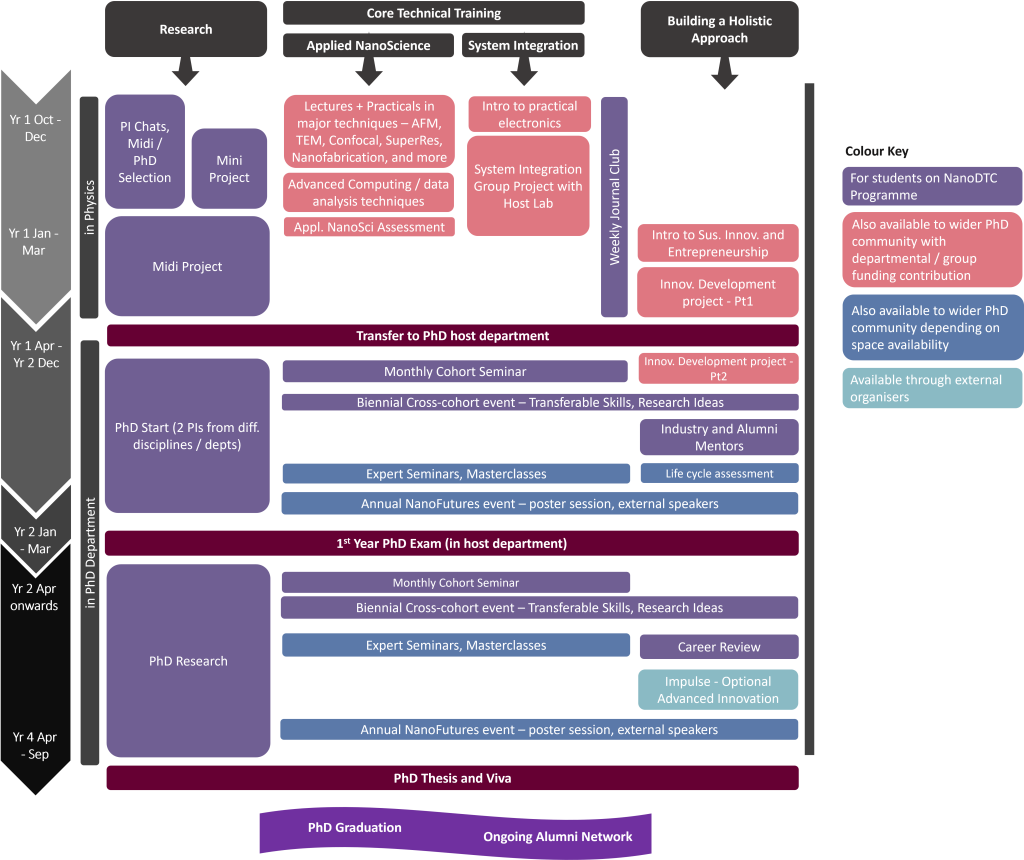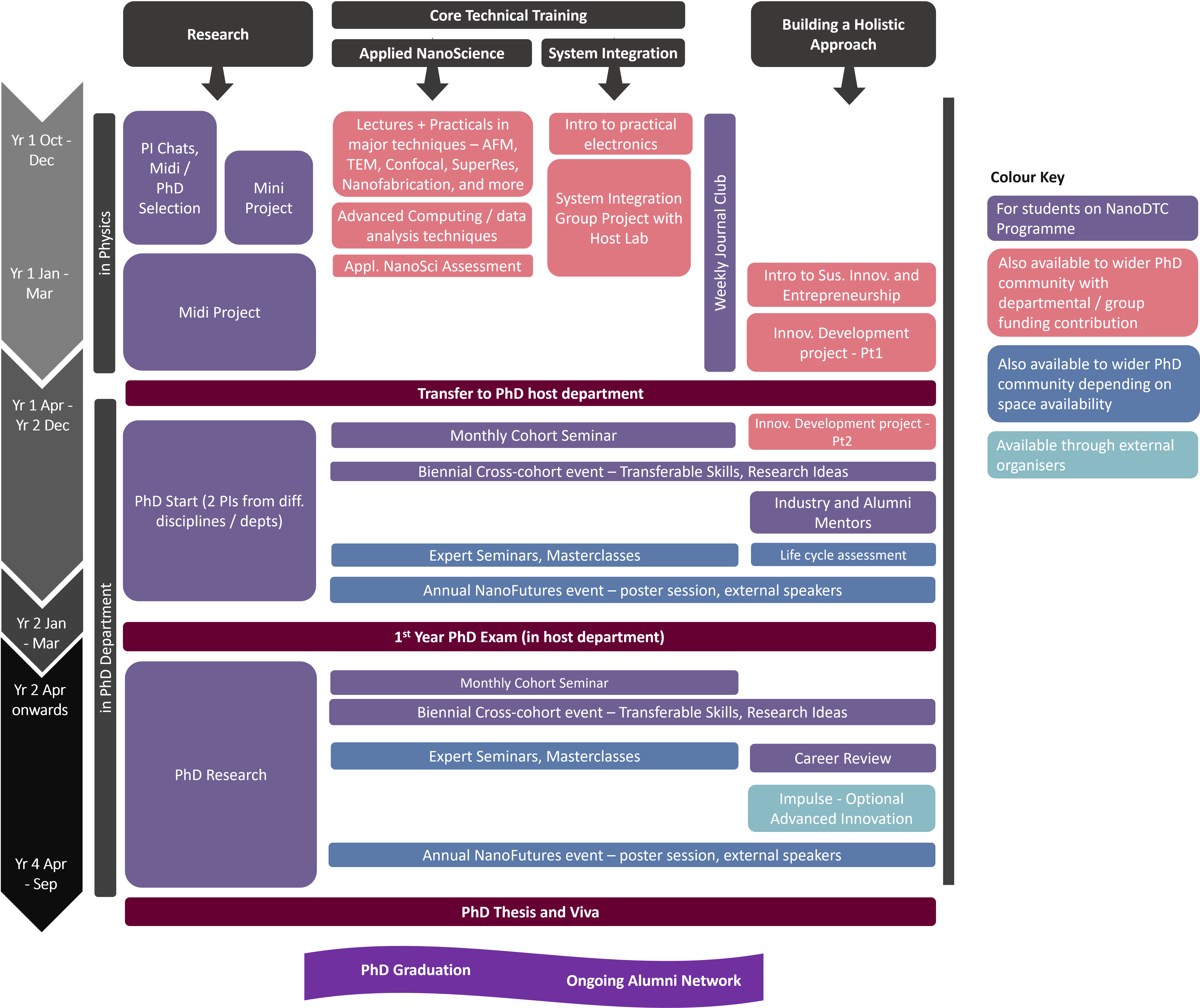Our new PhD programme will cover bespoke training in key areas of Nano to translate exploratory nanoscience into impactful technologies, and to stimulate new interactions that support our vision.
The initial six-month project selection and intensive training period will offer high-quality advanced-level training through:
– a new integrated module on Applied Nanoscience, covering lectures, practicals and data analysis on key topics
– a system integration module covering practical electronics and a group project in a host lab
– a short (8-week) and longer (10-week) experimental research project
– a module on innovation and entrepreneurship for scientists
At the six month point the final selection of an interdisciplinary PhD research project will be made, with two supervisors from two research groups in the Departments of Physics, Chemistry, Engineering, Materials or another relevant department across the University. Normally the midi project would be closely linked to the PhD choice so that the students have a chance to get some experience in the prospective PhD lab before confirming their choice.
Below: Indicative diagram of how the different elements of the programme might be placed alongside each other

An important part of the programme, beyond core technical training and research, is building a holistic approach for doing science, which includes understanding and applying principles of sustainability and inclusivity in all aspects of research, applications, entrepreneurship and communication.
Professional skills training and cohort-based activities are other important elements of the programme. These are provided through a range of cross-cohort events throughout the programme, such as student-led conferences, research seminars, onsite and offsite research and career development workshops led by internal and external experts, and other activities.
The programme is suited to students who are keen to move beyond the silo of a single scientific discipline, to develop a holistic research approach that is problem focussed, and to be part of a vibrant research community. The programme welcomes applicants from across the physical sciences including Chemistry, Physics, Materials, Engineering and any other subject that gives applicants a good background to undertake a PhD in nanoscience and nanotechnology.
Students completing the programme go on to careers in industry and academia, and a significant number have also set up their own startups.
For information on how to apply see here. You can also contact one of our current MRes+PhD students to find out more about the programme.

